“I Could Not Resist This Elation, The Unwarranted Bliss Transcends, In A Very Special Way – It Is
“I could not resist this elation, the unwarranted bliss transcends, in a very special way – it is about you; - you have touched my sleeping soul. It is your touch that rattles me; it is the shape of your warmth which completely plays a static and sweet perpetuation, your little raindrops of innocence; - it is as though I am contained with a derivative effect– this tiny life, here, there, you: all of what surrounds me uplift, oh what shall I compromise?”
— Chuck Akot, “I could not resist this elation.”
More Posts from Thedevilpriv-blog and Others
ay Dio mio
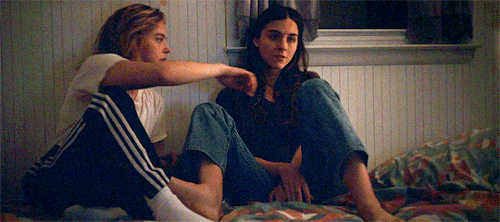
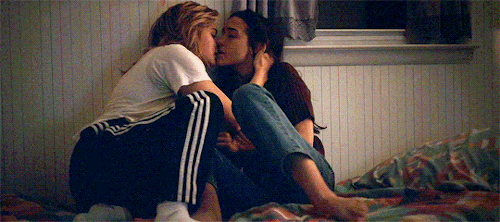
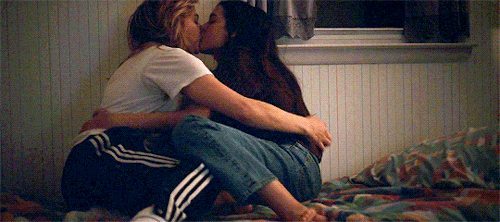
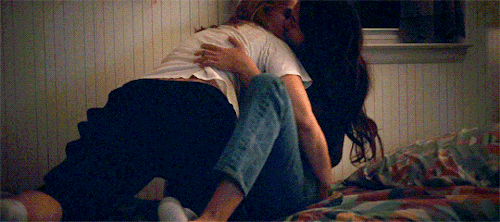
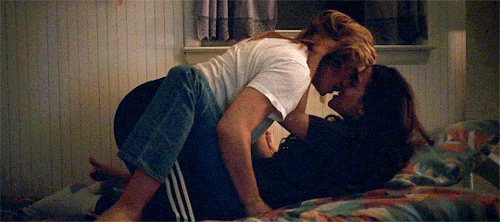
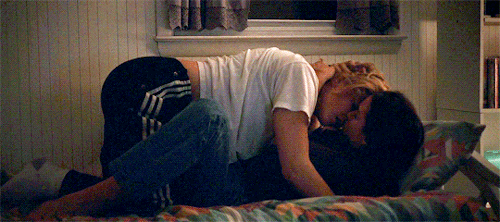
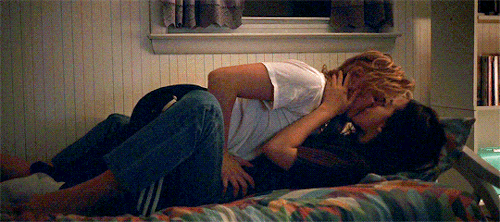
The Miseducation of Cameron Post (2018)
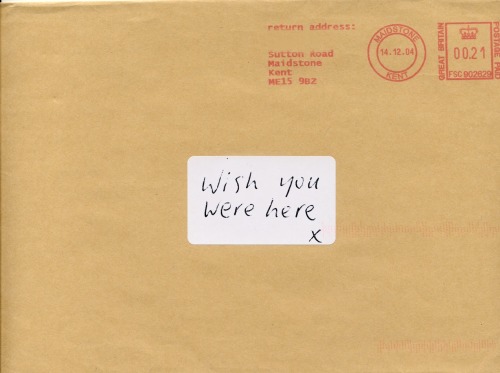
“Trata de no pensar mucho las cosas, todo va a estar bien.”
— SuspirosAlAire

#motorrad #motorradgirls #bmwmotorradgirls #310r si me ven, pueden saludarme. https://www.instagram.com/p/BwM0Nj1Bk0Y/?utm_source=ig_tumblr_share&igshid=1357nj8fcclk0
Y una vez que ha salido al mundo, sentir celos de que alguien más reconozca su belleza.

tan yo.
I just finished my first novel! The feeling is indescribable. Do you have any advice on editing, big or small?
Dear fate-and-chance,
Congratulations on joining THE ENDTIMES CLUB.
Editing is basically the place the novels become novels — it’s impossible to overstate how the rough draft is only 10% of the process. Here is a pie chart demonstrating the overall gist. It’s messed up because I aggressively and deliberately misunderstand math at all times and also because I traced a ramekin full of discarded date pits on my desk for the outside, but you get the idea.

What I’m trying to say is: be prepared to spend the same amount of time editing as writing.
GET CRITIQUE PARTNERS
This is the first step to editing. You need outside eyes. You don’t know if you have written the story you intended to tell until readers tell you that you’ve succeeded. A story is not complete until it has an audience.
You can find some here.
BIG PICTURE EDITS
It’s important to do your edits in the right order: there’s no point focusing on word choice when you don’t know if you’re going to keep a scene or not. What you’re looking for in big picture edits are
• pacing (is it taking you forever to get to your inciting incident? Are you leaping into breathless action so fast that the reader doesn’t have time to get emotionally invested? Is the general shape correct — do your stakes both emotional and physical slowly ratchet up til the climax?)
• clarity (do we know what the point of the book is? Do we understand who the main character is? Do we understand the stakes of the magic or the mystery or love story, etc?)
• momentum (are your scenes stacked in the correct order, or do you move backwards in stakes or have two scenes that essentially do the same thing?)
• consistency of character (are your characters consistent and inevitable? can we predict their behavior enough to be shocked if they do something out of character for once?)
• correctness of cast (do you have two characters who do the same thing in the plot? do you need to delete or add POVs or characters to your cast?)
• simplicity of execution (does the reader understand where they are in the plot? can they guess they are halfway through when they are halfway through, etc.?)
Title a document “outtakes.doc” and throw stuff that’s not working into it. You can always come back to them if you need them, but it’s often easier to see what you’re doing with the chaff removed.
LINE EDITS
Line edits are when you stop having to move big chunks around and can start fixing things within your newly edited shape. That is when you can start looking at adjusting pacing, tone, and momentum on a line level. Example:
Original sentence: The box rolled out of the truck and hit the ground.
Speed things up: Wham. The box, dropped. Tssss. Glass, exploded.
Slow things down: She snatched at air, and felt the whisper of the box sliding against her fingertips. The sound of the bottles exploding on the pavement echoed down the alley.
Ground us: Everything changed the moment that box hit the asphalt.
Tell us about a character: Ten years before, she’d been watching a box fall from through her mother’s hands in just this way. MORE ANECDOTE HERE
COPYEDITS
This is the part where you actually fix typos and continuity errors, and it’s the least important part of editing. This is where you can enlist a non-bookish friend to feel useful, because the less invested you are in the book, the easier they are to spot.
IN CONCLUSION
You could write entire books about revision — someone probably has — but this might be a start.
Happy wording.
urs,
Stiefvater
déjame un rato aquí, tirado en la cama que me duele un poco el alma
¿Cuánto daño te hizo aquel hijo de puta para qué pienses que estar sola es un bienestar? ¿Cuánto daño te hizo aquel hijo de puta para qué sueñes con lo que no fue y no con lo que será? ¿Cuánto daño te hizo aquel hijo de puta para qué pienses que fuiste la culpable de terminar? ¿Cuánto daño te hizo aquel hijo de puta para que creas que eres una puta niña rara y no lo más bonito de este mundo sideral? ¿Cuánto daño te hizo aquel hijo de puta para que no puedas gemir mi nombre cuando llegas al clímax? Dime…
¿Cuánto daño te hizo aquel hijo de puta para que llores y sangres en cada poesía que escribes recordando mi nombre?
— Manuel Ignacio.
-
 msrogershood liked this · 2 years ago
msrogershood liked this · 2 years ago -
 unihay1909 liked this · 3 years ago
unihay1909 liked this · 3 years ago -
 monam-whyyy liked this · 4 years ago
monam-whyyy liked this · 4 years ago -
 swearonsatan liked this · 5 years ago
swearonsatan liked this · 5 years ago -
 ma1aika liked this · 5 years ago
ma1aika liked this · 5 years ago -
 imintheunderworld reblogged this · 5 years ago
imintheunderworld reblogged this · 5 years ago -
 imintheunderworld liked this · 5 years ago
imintheunderworld liked this · 5 years ago -
 mgk-californiagrown liked this · 5 years ago
mgk-californiagrown liked this · 5 years ago -
 ur-forever-is-all-that-i-need reblogged this · 5 years ago
ur-forever-is-all-that-i-need reblogged this · 5 years ago -
 stardustxcake liked this · 5 years ago
stardustxcake liked this · 5 years ago -
 godessoffire33 reblogged this · 5 years ago
godessoffire33 reblogged this · 5 years ago -
 ignitecarnations liked this · 5 years ago
ignitecarnations liked this · 5 years ago -
 rivkahhannahsf liked this · 5 years ago
rivkahhannahsf liked this · 5 years ago -
 pinkjasm liked this · 5 years ago
pinkjasm liked this · 5 years ago -
 uhmitsensie liked this · 5 years ago
uhmitsensie liked this · 5 years ago -
 maharapati reblogged this · 5 years ago
maharapati reblogged this · 5 years ago -
 silky-v liked this · 5 years ago
silky-v liked this · 5 years ago -
 cryptqueen6795 reblogged this · 5 years ago
cryptqueen6795 reblogged this · 5 years ago -
 cryptqueen6795 liked this · 5 years ago
cryptqueen6795 liked this · 5 years ago -
 the-french-dreamer12 liked this · 5 years ago
the-french-dreamer12 liked this · 5 years ago -
 febycurtis02 liked this · 5 years ago
febycurtis02 liked this · 5 years ago -
 shimmersinthesky reblogged this · 5 years ago
shimmersinthesky reblogged this · 5 years ago -
 shimmersinthesky liked this · 5 years ago
shimmersinthesky liked this · 5 years ago -
 ripleybelieveit reblogged this · 5 years ago
ripleybelieveit reblogged this · 5 years ago -
 philosopherliam liked this · 5 years ago
philosopherliam liked this · 5 years ago -
 starryskiesareinfinite33 reblogged this · 5 years ago
starryskiesareinfinite33 reblogged this · 5 years ago -
 chuckakot reblogged this · 5 years ago
chuckakot reblogged this · 5 years ago -
 bocetoenacuarela liked this · 5 years ago
bocetoenacuarela liked this · 5 years ago -
 easterneuropeanprincess liked this · 6 years ago
easterneuropeanprincess liked this · 6 years ago -
 gray-ish liked this · 6 years ago
gray-ish liked this · 6 years ago -
 terewxi liked this · 6 years ago
terewxi liked this · 6 years ago -
 ambiguiity liked this · 6 years ago
ambiguiity liked this · 6 years ago -
 imperfectionofhumanflesh liked this · 6 years ago
imperfectionofhumanflesh liked this · 6 years ago -
 thedevilpriv-blog reblogged this · 6 years ago
thedevilpriv-blog reblogged this · 6 years ago
